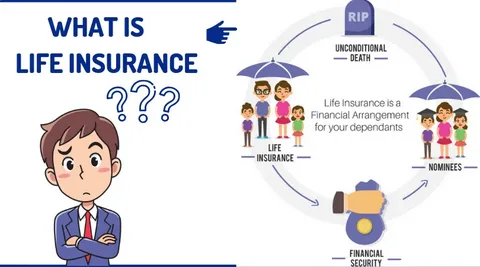BIPD Insurance stands for Bodily Injury and Property Damage Insurance. It’s a crucial type of liability insurance, especially for businesses in the transportation sector. This article will delve into the details of BIPD insurance, its importance, coverage, and why it’s essential for businesses. We’ll also sprinkle in some humor and keep things light to make this comprehensive guide enjoyable to read.

What is BIPD Insurance?
BIPD insurance is a type of liability insurance that covers damages and injuries resulting from accidents involving company-owned vehicles. This insurance is designed to protect businesses from the financial consequences of accidents where they are found liable for causing bodily injury or property damage to others1.
Why is BIPD Insurance Important?
Imagine you’re driving a company truck, and you accidentally rear-end another vehicle. Without BIPD insurance, your business would be responsible for covering the medical expenses of the injured party, the repair costs for the damaged vehicle, and any legal fees if the injured party decides to sue. With BIPD insurance, these costs are covered, protecting your business from significant financial loss2.
Coverage Details
BIPD insurance typically includes two main components:
- Bodily Injury Liability: This covers medical expenses, lost wages, rehabilitation costs, and pain and suffering for the injured party.
- Property Damage Liability: This covers the repair or replacement costs for damaged property, such as vehicles, buildings, or personal belongings3.
Legal Requirements
In the trucking industry, BIPD insurance requirements are set by the Federal Motor Carrier Safety Administration (FMCSA). These requirements vary depending on the type of commodities transported and the gross vehicle weight. For instance, freight carriers transporting non-hazardous materials in vehicles weighing under 10,001 lbs require $300,000 in BIPD coverage, while coverage may range between $750,000 to $5,000,000 for those transporting other types of commodities1.

Additional Coverage Options
While BIPD insurance is essential, businesses may also consider additional coverage options to further protect their assets. These can include:
- Comprehensive Coverage: Covers damages to your vehicle from non-collision incidents like theft, vandalism, or natural disasters.
- Collision Coverage: Covers damages to your vehicle resulting from a collision, regardless of fault.
- Uninsured/Underinsured Motorist Coverage: Protects you if you’re involved in an accident with a driver who doesn’t have sufficient insurance2.
Choosing the Right BIPD Insurance
Selecting the right BIPD insurance policy involves considering several factors:
- Coverage Limits: Ensure the policy meets the minimum legal requirements and provides adequate protection for your business.
- Premium Costs: Compare premiums from different insurers to find a policy that fits your budget.
- Additional Benefits: Look for policies that offer additional benefits, such as legal defense coverage or roadside assistance3.
Common Questions About BIPD Insurance
Q: What happens if my BIPD coverage is insufficient?
A: If your BIPD coverage is insufficient to cover the damages and injuries from an accident, your business may be responsible for paying the remaining costs out of pocket. This can lead to significant financial strain1.
Q: Can I bundle BIPD insurance with other types of insurance?
A: Yes, many insurers offer bundled policies that include BIPD insurance along with other types of coverage, such as comprehensive and collision coverage. Bundling can often result in cost savings2.
Q: How can I lower my BIPD insurance premiums?
A: There are several ways to lower your BIPD insurance premiums, including maintaining a good driving record, implementing safety training programs for employees, and choosing higher deductibles3.

Conclusion
BIPD insurance is a vital component of any business’s risk management strategy, especially for those in the transportation industry. By understanding the coverage details, legal requirements, and additional options available, businesses can ensure they are adequately protected from the financial consequences of accidents. Remember, it’s always better to be safe than sorry – and a little humor never hurts! So, buckle up, drive safely, and make sure your BIPD insurance is up to date.
1: TruckingInsurance.org 2: Tivly 3: Full Coverage LLC
Feel free to reach out if you have any more questions or need further assistance!



